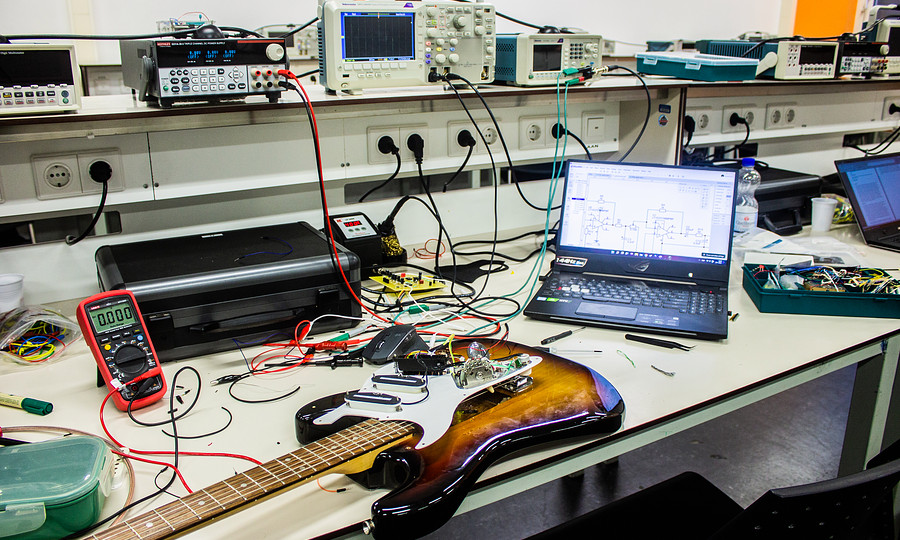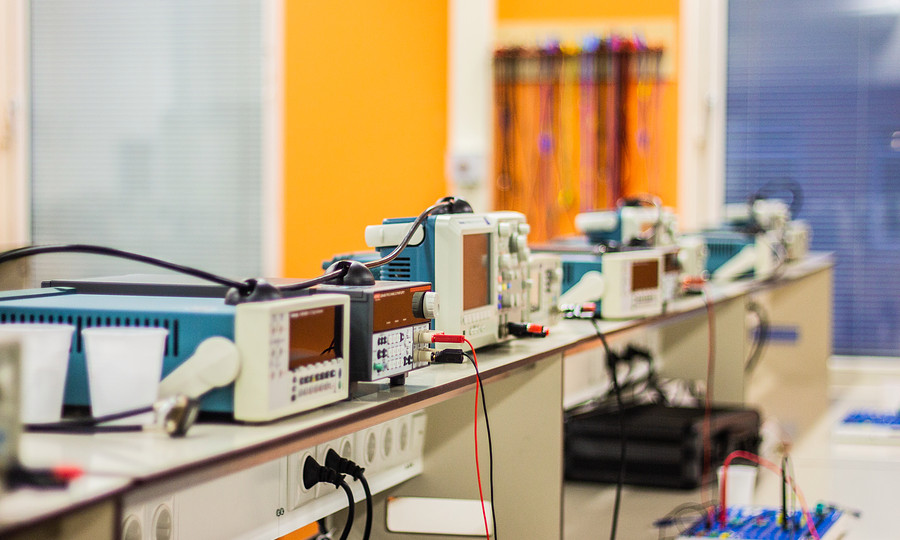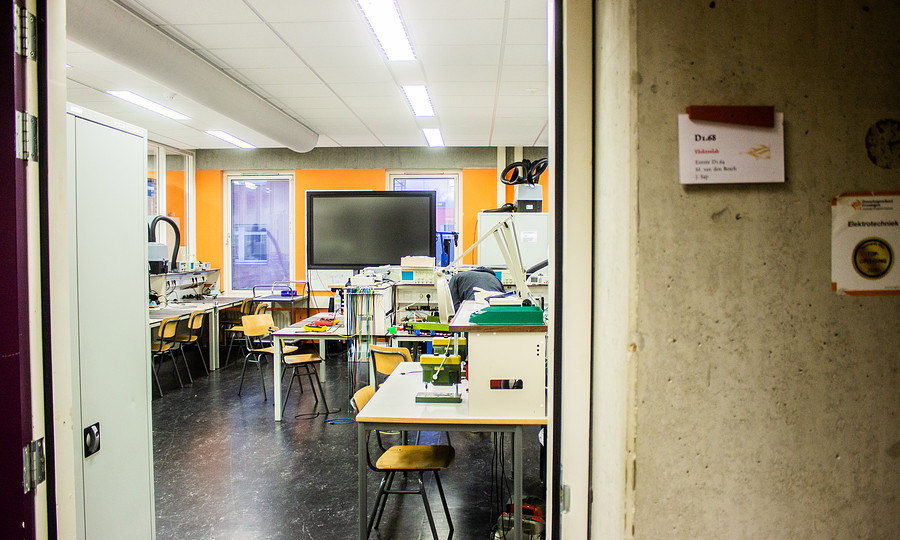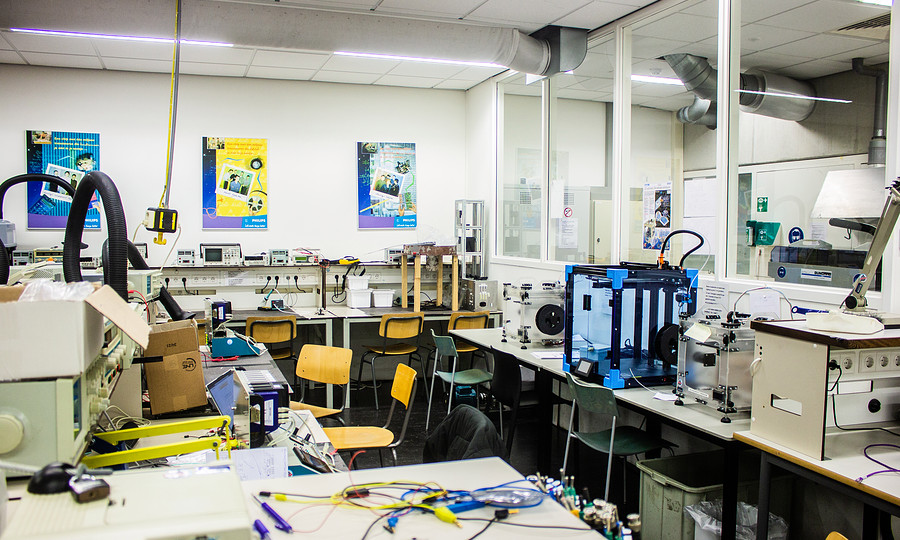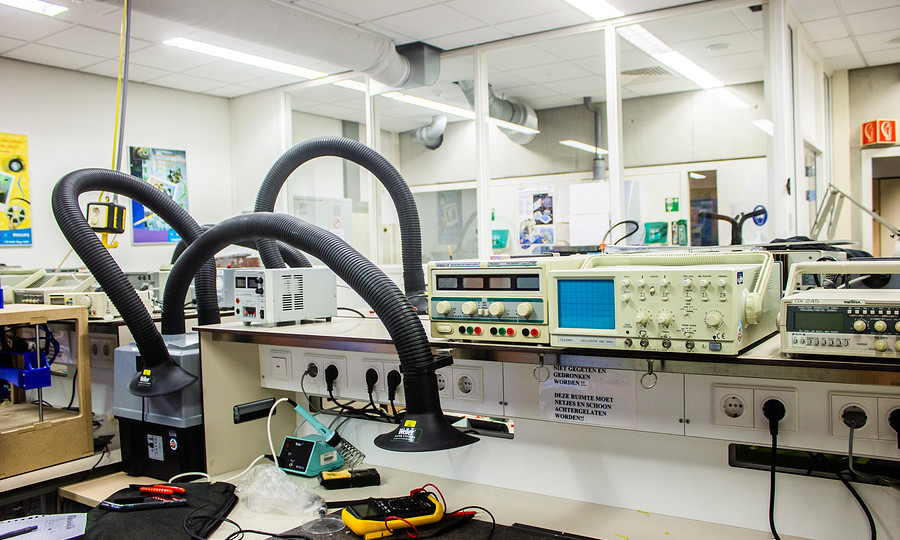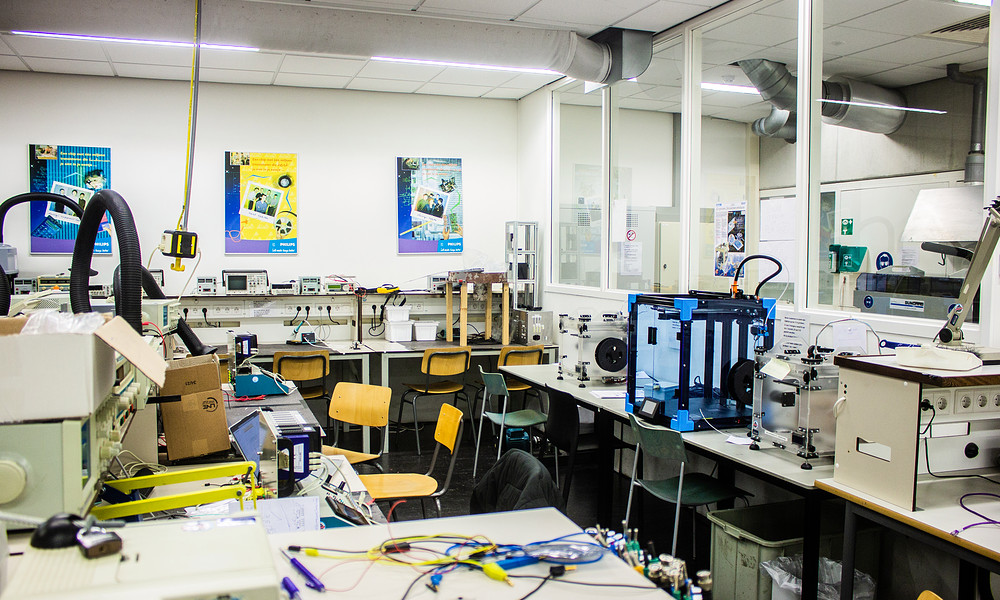
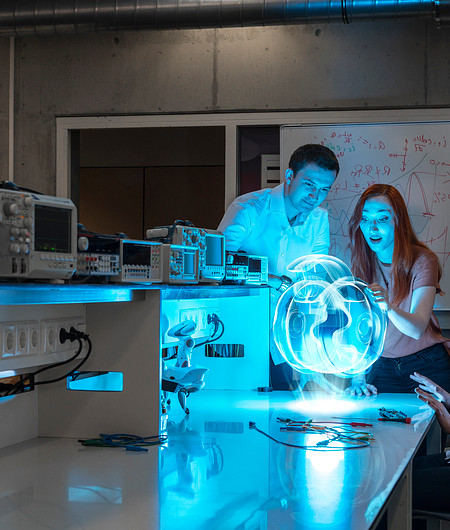
During your programme you will work on all kinds of projects. You’ll come up with all sorts of solutions to problems, which you’ll then want to create and test. You do this in the various Electrical Engineering workshops. This way you do not just learn how to make something in theory, but you will be able to also implement it in practice. The workshops are equipped with everything you need for your school projects. And you can even go to the workshops to work on your own projects!
Electrical engineering workshops
The Electrical Engineering study programme has its workshops in the D corridor. These workshops are supplied with measurement and control equipment, soldering irons and one 3D printer. There is also equipment available to make and etch your own printed circuit boards (PCBs). This way you’ll have everything at hand to create the products you've invented.
In the workshops you’ll always encounter other students working on their projects. Of course, there is something different being worked on every time, but you may come across a group working on a miniature elevator or model bridges (that really open and close), for example. Larger projects have also been made in these workshops. How about a solar panel that moves with the direction of the sun? Or a robot that automatically cleans the beach? By combining different techniques and working together, endless possibilities are open to you!
The workshops are open during working days from 9:00 to 17:00.
Safety first
Safety is important in the Electrical Engineering workshops. To help and support you, there are always SCC-certified instructors present in every workshop. In addition, personal protective equipment is mandatory in every workshop and is therefore available. Consider, for example, safety glasses, gloves and hearing protection.
You have the option to obtain your SCC certificate yourself at Hanze University of Applied Sciences. SCC stands for Safety, Health and Environment (HSE) Contractors Checklist. By obtaining this certificate, you demonstrate that you have basic knowledge of safe and healthy working practices. Many technical companies in the Netherlands require such a certificate, so it can be useful to obtain it now. But you also need a SCC to be able to work independently in the workshops. For more information, view the information page about the SCC certificate.
Feedback component
How satisfied are you with the information on this page?
